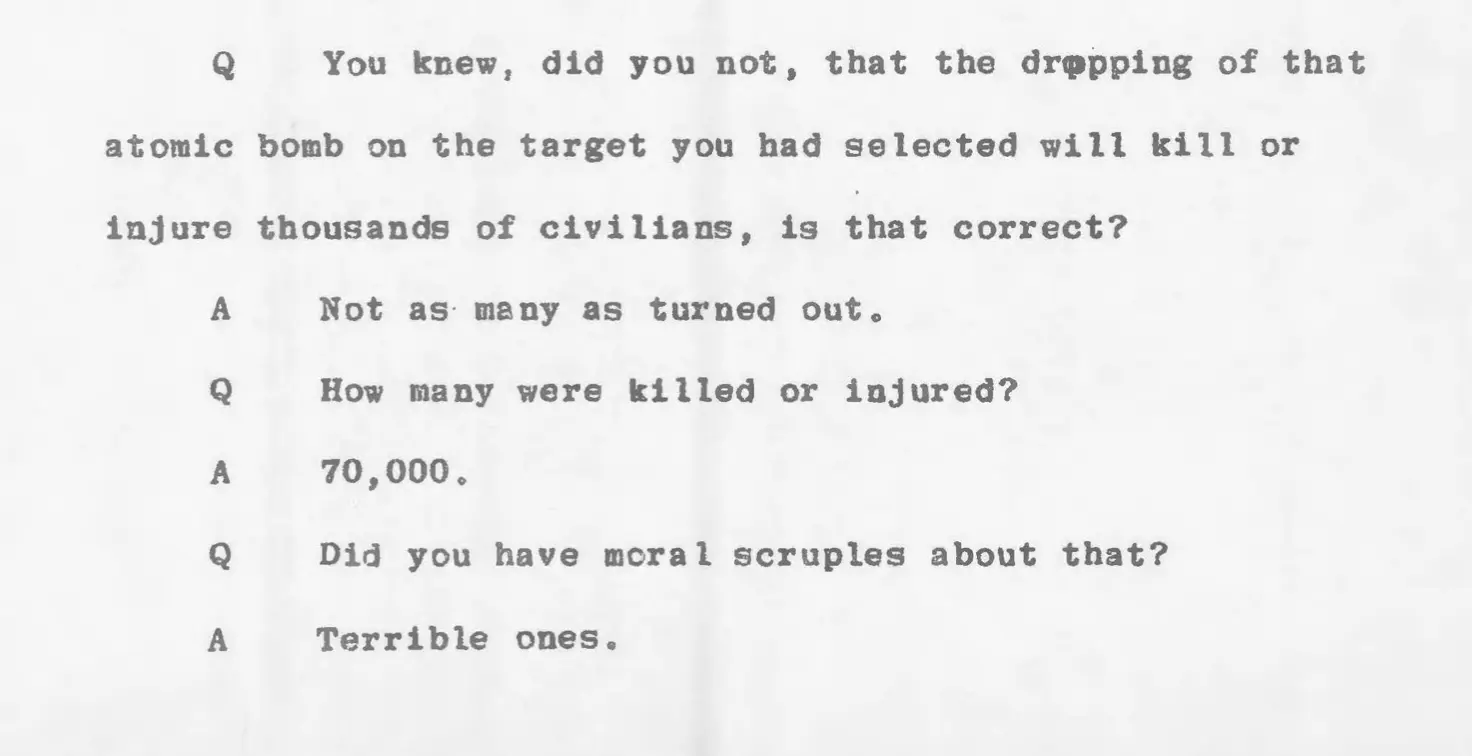In practice, authors and reports seem to cluster around two numbers, which I will call the “low” and the “high” estimates. The “low” estimates are those derived from the estimates of the 1940s: around 70,000 dead at Hiroshima, and around 40,000 dead at Nagasaki, for 110,000 total dead. The “high” estimates are those that derive from the 1977 re-estimation: around 140,000 dead at Hiroshima, and around 70,000 dead at Nagasaki, for a total of 210,000 total dead. Given that the “high” estimates are almost double the “low” estimates, this is a significant difference. There is no intellectually defensible reason to assume that, for example, an average (105,000 dead at Hiroshima, 55,000 dead at Nagasaki) would be more accurate or meaningful.
My qualitative sense is that historians who want to emphasize the suffering of the Japanese (and the injustice of the bombing) tend to prefer the “high” numbers, while those who want to emphasize the military necessity of the attack tend to prefer the “low” numbers. And therein lies the real question: What do these estimates
do for us, rhetorically? It is clear that numbers, stripped from their technical contexts, are deployed primarily as a form of moral calculus. And this should not surprise us, given that so much of the argument defending the atomic bombs relies on another casualty estimate: how many people might have died in a full-scale land invasion of Japan (
numbers that have been similarly contested for decades, ranging from tens of thousands of casualties, to the more imaginative millions).
Separately, the number of dead at Hiroshima and Nagasaki have also been explicitly compared to the estimated dead from the devastating firebombing attacks against both Germany (notably Dresden) and Japan (notably Tokyo) that preceded them. This argument is again part of the justification of atomic bombings, an attempt to show that they were not “special” in any particular moral sense when put up against “conventional” Allied activity. Whether this is or isn’t a strong argument is out of scope for this article, but it is just worth keeping in mind what work the “low” numbers do, for they pale in comparison with the highest estimates of the Tokyo bombing dead, and with the estimates for a land invasion of Japan.
Given that there is no satisfactory way to decide whether the “low” or “high” estimates are more accurate, it is fairly clear there is no “neutral” choice to be made. It ultimately comes down to which sort of authority one wishes to go with: the official estimates of the United States military in the 1940s, or the later estimates by a group of anti-nuclear weapons scientists, largely spearheaded by Japan. Both made legitimate points in making their estimations; neither show any apparent perfidy or obvious intellectual dishonesty.


